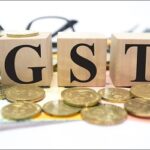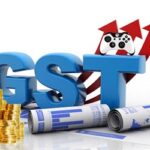Introduction
The GST Composition Scheme is a simplified taxation system introduced to ease the compliance burden of small taxpayers. Applicable to small manufacturers, traders, and service providers, the scheme allows them to pay tax at a fixed rate of turnover. With lower compliance requirements and simplified returns, it remains one of the most preferred schemes for small businesses in FY 2025–26.
Eligibility Criteria for FY 2025–26
- Manufacturers and traders: Turnover up to ₹1.5 crore (₹75 lakh for special category states).
- Service providers: Turnover up to ₹1.5 crore.
- Must operate within a single state.
- Cannot engage in inter-state supply.
- Not applicable for e-commerce suppliers.
- Alcoholic beverage manufacturers, tobacco sellers, and non-taxable goods suppliers are excluded.
Applicable GST Rates
- Manufacturers: 1% (0.5% CGST + 0.5% SGST)
- Traders: 1% (on taxable turnover)
- Restaurants (not serving alcohol): 5%
- Service providers under Notification 2/2019: 6% (3% CGST + 3% SGST)
Advantages of Composition Scheme
- Low compliance burden (quarterly tax and one annual return).
- No requirement to maintain detailed records.
- Not liable for Input Tax Credit reconciliation.
- Lesser tax liability.
- Ideal for small retail outlets, service consultants, and local manufacturers.
Disadvantages & Limitations
- Cannot issue tax invoices or charge GST from customers.
- Not eligible for Input Tax Credit.
- Ineligible to undertake inter-state trade.
- Not suitable for B2B businesses seeking ITC.
- Loss of competitive edge for vendors supplying to large buyers.
Returns& Compliance under Composition Scheme
- CMP-08 (quarterly): Payment of self-assessed tax.
- GSTR-4 (annually): Summary of outward supplies.
- ITC-03 (at the time of switching from regular to composition scheme).
- Display ‘Composition Taxable Person’ at business premises and on invoices.
How to Opt into the Scheme
- File CMP-02 on the GST portal before the financial year begins.
- Once opted, the dealer must file ITC-03 within 60 days to reverse ITC.
- Continue until voluntarily opted out or ineligible due to turnover.
Comparison with Regular Scheme
Here is the information converted into a table format:
| Particulars | Composition Scheme | Regular Scheme |
| Tax Rate | Lower (1%, 5%) | Normal slabs (5%, 12%, 18%, 28%) |
| Input Tax Credit | Not Allowed | Allowed |
| Invoicing | No tax invoice | Must issue tax invoice |
| Returns | CMP-08, GSTR-4 | GSTR-1, GSTR-3B |
| Compliance Burden | Low | High |
Businesses must avoid underreporting turnover or supplying interstate to remain eligible. Authorities monitor such practices, and wrong claims can lead to penalties and scheme cancellation.
Recent Changes & Updates for FY 2025–26
- Real-time monitoring of turnover via e-invoice linkage.
- Optional biometric authentication in selected states.
- Cross-validation with ITR filing for turnover accuracy.
- Clarification issued on service composition turnover applicability.
Conclusion
The GST Composition Scheme is a simplified taxation mechanism for eligible small taxpayers. If you are a small trader, manufacturer, or service provider, this scheme can reduce compliance hassle and tax liability. Consult Nitin Bhatia & Associates to determine eligibility, apply for the scheme, and manage compliance efficiently.
Turnover Calculation for Composition Eligibility
Turnover includes:
- All taxable supplies
- Exempt supplies
- Exports
- Inter-state supplies
It excludes:
- Reverse charge inward supplies
- Interest income on loans/deposits
Restrictions on Composition Scheme
- Cannot engage in inter-state supply
- Not applicable to e-commerce sellers
- Not eligible for Input Service Distributor (ISD) or TDS deductors
- Cannot make supply through an agent in another state
Switching Between Regular and Composition Scheme
- Businesses can shift from regular to composition by filing CMP-02 at the beginning of FY
- ITC must be reversed via ITC-03
- If turnover exceeds limits, one must switch to regular scheme and file CMP-04
- Late transition can attract penalty
Consequences of Ineligibility
If a business wrongly continues under the Composition Scheme:
- Must pay differential tax at regular rates
- ITC cannot be claimed
- Penalty and interest may apply
- Tax liability recalculated from date of ineligibility






